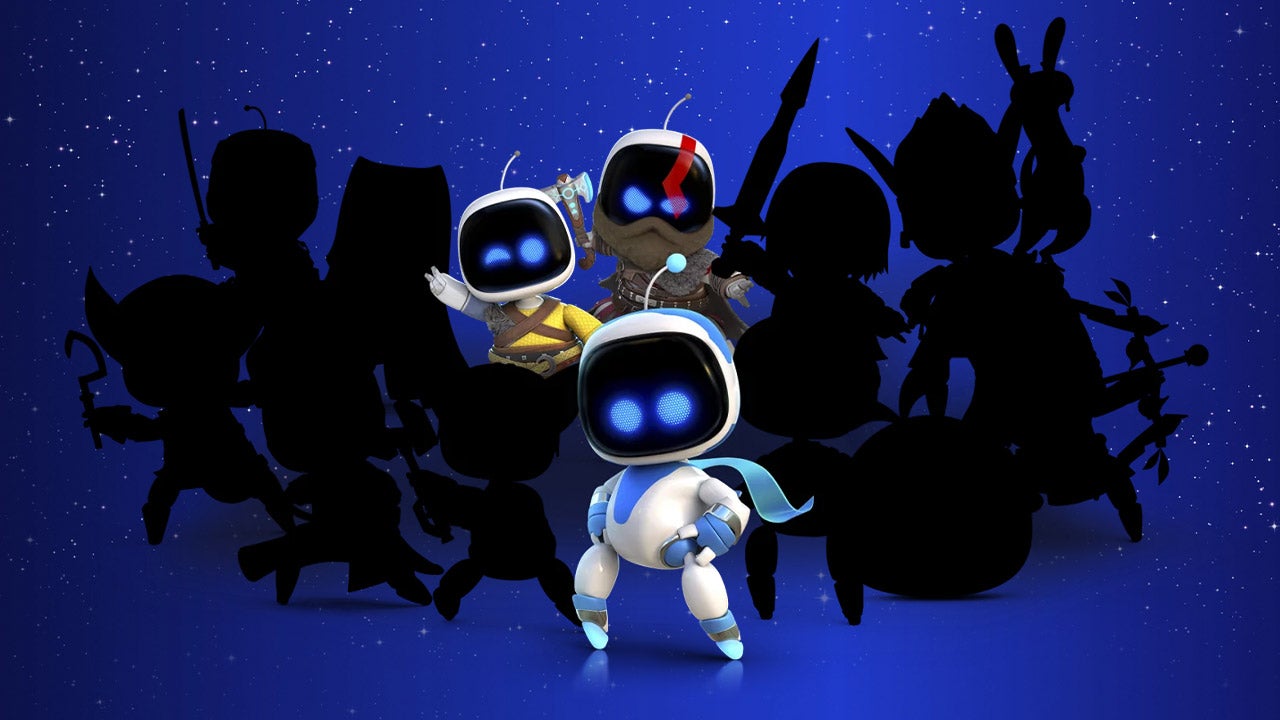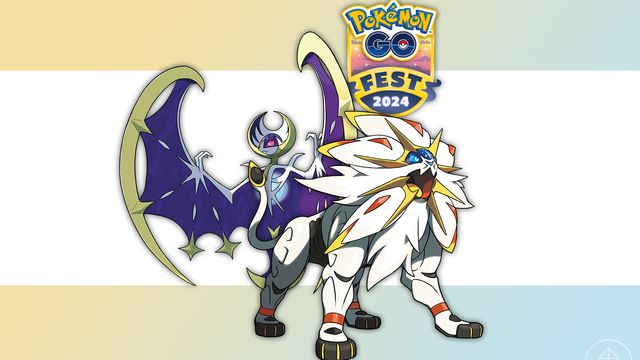Warning: Spoilers for Astro Bot follow.
There are well over 150 PlayStation characters, references, and Easter eggs in Sony’s brilliant new platformer Astro Bot. Some will be known to most – God of War’s Kratos, Uncharted’s Nathan Drake, and Horizon’s Aloy, for example – but some may just have you scratching your head a little.
Well, that’s where we can help you out. We’ve scoured the clues given and taken a look back through PlayStation history to find out what games and consoles these little guys are from. So, without further ado, here are 21 of the most obscure PlayStation characters from Astro Bot explained.
1. Captain Rock - Motor Toon Grand Prix

Before renaming to Polyphony Digital and becoming the creators of the beloved racing series Gran Turismo, Polys Entertainment developed Motor Toon Grand Prix in 1994. More of a kart racer than the sim racing experience Polyphony would become known for, a handful of cartoonish characters and their accompanying cars were available to drive with. Captain Rock (you don’t want to pronounce that name incorrectly) was the cover star of Motor Toon Grand Prix and its 1996 sequel.
2. Alundra - Alundra

Alundra is the titular protagonist of Alundra (known in Europe as The Adventures of Alundra), an action-adventure about a young man with the power to enter other people’s dreams. Not an ode to A Nightmare on Elm Street nor the inspiration for Inception, Alundra was developed by Matrix Software in 1997 and was noted for its tough puzzles and dark story themes. A sequel was released in 1999, and despite being called Alundra 2, didn’t feature the character of Alundra at all. Who knows why.
3. Ulala - Space Channel 5

Charged with investigating an alien invasion, news reporter Ulala is the protagonist of Space Channel 5, a music game first released in 1999 for the Dreamcast before making its way to the PlayStation 2 three years later. Taking a heavy influence from the aesthetics of 1960s sci-fi, both Space Channel 5 and Ulala are remembered for their distinct style as well as, of course, all that memorable music.
4. Conductor Takt - Mad Maestro!

Let’s not stop the music yet and head right over to PS2 rhythm game Mad Maestro! and its classical orchestra. That orchestra is led by Conductor Takt, and taking command of his conducting baton puts you in charge of keeping all the musicians in check by pressing increasingly more complex and frantic button combos.
5. Little Devil - Devil Dice

An intricate and entirely singular puzzle game, Devil Dice is all about moving around levels and causing chain reactions by flipping and rotating die as you walk across them. A big seller for the original PlayStation, you play as a little devil in the game, who is pictured right here.
6. Arc the Lad - Arc the Lad

Arc the Lad was the biggest-selling Japanese PlayStation game of 1995. Despite that, it never saw a release outside of its home nation (apart from in a compilation many years later). A tactical RPG, the story follows Arc, a lad on a journey to find his long-missing father. Two sequels would be released for the original PlayStation in the following five years.
7. Klonoa - Klonoa: Door to Phantomile

A cloaca is the part of a snake or chicken (and many other animals) where the eggs come out. Importantly, this is not cloaca, but Klonoa, a platform series with entries that spanned across the original PlayStation and PS2. First appearing in 1997’s Klonoa: Door to Phantomile, protagonist Klonoa is a nondescript mash-up of dog, cat, and rabbit – none of which are egg-producing animals. He does have the ability to travel to different dream realms, however, and remove the forces that threaten them. He also has creator Namco’s original mascot Pac-Man on his hat.
8. Boku - Boku no Natsuyasumi

The Japanese title ‘Boku no Natsuyasumi’ translates into English as My Summer Vacation. And that’s exactly what this game is, as you follow a young boy named Boku on his summer trip away from home. Set in 1975 in rural Japan, its an easygoing time as you decide what to do with the 31 days you have on the calendar. Fishing, catching bugs, or flying kites are all potential entries in your relaxed schedule. It would go on to get three sequels, although none are yet to have been released outside of Japan.
9. Chef - Ore no Ryouri

Another Japanese exclusive, Ore No Ryouri is a fast-paced cooking game in which you control a chef using solely the analog sticks. Battling against the clock (and cockroaches), players were tasked with managing different types of restaurants when it was released for the PlayStation in 1999.
10. Vibri - Vib-Ribbon

Perhaps the least obscure on this list of obscure characters is Vibri from Vib-Ribbon. An early example of Sony’s desire to experiment (and, frankly, just get weird) you controlled a wireframe character called Vibri as you navigated a black-and-white world. Produced by Masaya Matsuura, the man behind other rhythm games like PaRappa the Rapper and Um Jammer Lammy, has become somewhat of a cult hit in the years since its launched in 1999, eventually getting a North American release in 2014.
11. Cube Head - Intelligent Qube

The original PlayStation ushered in a new era for 3D graphics. And tell me, what’s more 3D than a cube? A qube perhaps? Intelligent Qube was a puzzle game about a tiny man pushing a giant box around levels in order to clear them. First arriving in 1997, it has received many different remasters and remixes, and was even added to PlayStation Plus as recently as 2022. Check out if you love cubes, and especially qubes.
12. Taneo - Incredible Crisis

Taneo has a day from hell in Incredible Crisis. In one of many minigames, he’s forced to dance with his coworkers (which would be as horrifying as it gets for most of us), but it gets a lot worse from there. An incoming boulder, high-speed traffic, a bomb, and a UFO are just some of the things he has to steer clear of in order to make it home to his family. Released on the original PlayStation, it won the “Best Other Game” IGN award in 2000. Whatever that means.
13. Mister Mosquito - Mister Mosquito

In Mister Mosquito you play as this annoying little bastard who enjoys nothing more than flying around a house looking for blood to suck from its occupants. Buzzing his way onto the PS2 in 2001, it's definitely one of the weirder games to have made it onto the console, and it’s perhaps just as weird that he shows up in Astro Bot.
14. Pomeranian - Tokyo Jungle

Before The Last of Us on the PlayStation 3, there was Tokyo Jungle – a post-apocalyptic survival action game that put you into the shoes of many different animals (if animals wore shoes, that is.) One of those animals is the humble Pomeranian, who is cute to wander around a ruined Japan and chomp on unsuspecting pigs with. Until he’s mauled by a pack of wild dogs, that is. A genuinely funny curio, Tokyo Jungle has developed a cult following since its 2012 debut.
15. Shiba Inu - Humanity

Another canine pal and by far the most recent entry onto this list, the Shiba Inu from Humanity glows bright in order to direct crowds to safety. Released only last year and produced by Tetsuya Mizuguchi (creator of Rez, Lumines, and Tetris Effect), it was one of the most underplayed but critically aclaimed games of 2023. Check it out if you haven’t already.
16. AIBO ERS-110

Now, not all of these characters are actually from games. Some are actually from the real world. The ERS-110 was the first model of AIBO (Artificial Intelligence RoBOt) from Sony, a robotic dog that had the ability to learn and ‘grow up’ over time. It would react to its owners in different ways after extended communication and be able to express different emotions. It was released in 1999, but discontinued in 2006 after underwhelming sales.
17. AIBO ERS-1000

But the robot dog returned! Able to recognise up to 100 people’s faces and designed with a much “cuter” dog appearance than its more robotic older brother, the ERS-1000 has been available to buy since 2018 and will only cost you $2,899.99 to have in your home. Bargain.
18. Toro Inoue (Sony Cat) - Official PlayStation Mascot in Japan

It’s really raining both cats and dogs in Astro Bot. Here is Toro Inoue, a white cat who has been the official PlayStation mascot in Japan since he first appeared in virtual pet game Doko Demo Issyo. A cultural icon in Japan, Sony America was against the idea of having a single mascot represent the PlayStation platform, which explains his lack of presence in the West.
19. Kuro (Toro's friend) - Official PlayStation Mascot in Japan

Often seen alongside Toro is Kuro. They’ve appeared in many games together such as Doko Demo Issyo on the PS2 and Mainichi Issho on the PS3. Not quite as pure as his cat counterpart, Kuro is known to be “a man of vices” who enjoys the company of women, gambling, and drinking. He hasn’t been cancelled… yet.
20. Polygon Man - Original PlayStation Marketing

Polygon Man was one of the first characters to be associated with the PlayStation brand. Essentially a purple, blocky piece of marketing, he was used to show off the 3D graphical power of the original console back in 1995. He never had his own game, but did appear as the final boss in 2012’s PlayStation All-Stars Battle Royale. Is it time for Sony to give that one another shot?
21. Robbit - Jumping Flash!

Staying with 1995 and the birth of PlayStation, in Jumping Flash! you play the role of Robbit, a giant robotic rabbit who bloody loves to jump. Armed with his sparkle beam gun and tasked with saving the galaxy from the evil and insane astrophysicist, Baron Aloha, it was initially revealed as a tech demo in 1994 before being turned into a full game a year later.
And that's what we think are the most obscure characters featured in Astro Bot explained. How many of the above games have you played? Let us know in the comments below.






